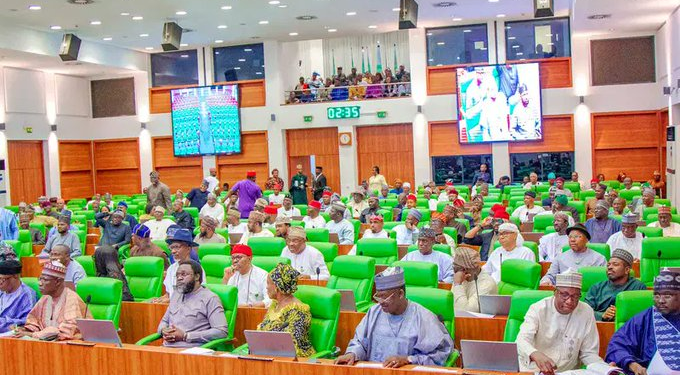The Nigerian House of Representatives has passed a resolution urging the Central Bank of Nigeria (CBN) to suspend the recent increase in Automated Teller Machine (ATM) transaction charges and the removal of free ATM withdrawals for customers using other banks’ ATMs.

The motion, raised as a matter of urgent public importance by lawmaker Marcus Onobun, brought attention to a CBN circular outlining the policy changes. Lawmakers expressed concerns that the new charges would place additional financial strain on Nigerians already grappling with economic challenges.
In response, the House directed the CBN to put the policy on hold pending further discussions with relevant committees on banking, finance, and financial institutions.
On February 10, 2025, the CBN announced that customers would now incur charges whenever they withdraw money from ATMs not operated by their banks.

According to the new policy, which took effect on March 1, 2025:
- The previous provision allowing three free monthly withdrawals at other banks’ ATMs has been scrapped.
- Customers withdrawing from other banks’ ATMs will now pay a fee of ₦100 per ₦20,000 withdrawal.
- For withdrawals from off-site ATMs (those located outside bank premises, such as in shopping malls and public spaces), an additional surcharge of up to ₦500 per ₦20,000 will be charged, alongside the ₦100 standard fee.
The CBN justified the policy by citing rising operational costs and the need to improve ATM services across the country. The apex bank stated that the reviewed charges would encourage banks to deploy more ATMs and ensure fair pricing for financial services.
However, the policy has faced widespread criticism, with many Nigerians questioning its impact on financial inclusion and access to banking services. Despite the backlash, the CBN maintains that the revised charges will be beneficial to both customers and financial institutions in the long run.
With mounting pressure from lawmakers and the public, the fate of the new ATM charges remains uncertain as discussions between the CBN and relevant stakeholders continue.









